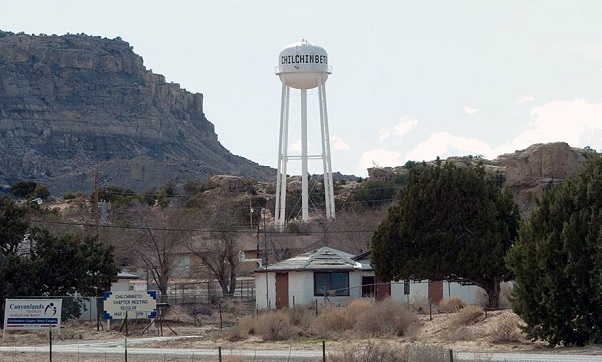[ by Charles Cameron — religion can tear us apart by bringing us together – it can also bring us into balance – the three movements here are Diné (Navajo) – Dreher – Diné ]
.
Diné:
It was at a smaller meeting at a church commonly associated with tent revivals that COVID-19 seems to have struck the Navajo nation:

Navajo Times, Virus strikes at rally: Chilchinbeto church gathering may be source of outbreak
The nation — the Diné — is highly susceptible to the coronavirus, susceptible by virtue of widespread diabetes, obesity, and other underlying conditions. In the words of the New York Times:
As of Wednesday night, the virus had killed 20 people on the reservation, compared with 16 in the entire state of New Mexico, which has a population 13 times larger.
It is not the fault of the religion —
The participants in the large gathering that congregated March 7 at the Chilchinbeto Church of the Nazarene Zone Rally — a meeting in which pastors deliver messages to their members — may have all been exposed to coronavirus by at least one person who later tested positive for the disease.
— but perhaps of a failure of government to inform the Diné with sufficient clarity in enough time, or of this particular congregation to refrain from congregating when that puts the congregants, and the Diné as a whole, at risk of death.
**
Catholic:
Rod Dreher is a pretty interesting writer`, a conservative Catholic who draws a lot of his ideas from St Benedict, the founder of Western monasticism> A paragraph of his caught my attention recently:
I’ll end by repeating what I think is a useful simile: going to church during the pandemic is like participating in an Appalachian snake-handler worship service, because it puts the participant in mortal danger. The virus is the poisonous snake, which may or may not bite you. But the virus differs, in that a person who is exposed to it at church could carry it out into the world, and share it unwittingly with every person he meets thereafter. It’s like leaving snake-handler church with pockets full of copperheads, which slide out in the grocery store, and everywhere else the worshiper goes.
Very insightful, IMO.
**
Still relevant, IMO, are the prayers of the Navajo Night Chant:
In beauty may I walk.
All day long may I walk.
Through the returning seasons may I walk.
On the trail marked with pollen may I walk.
With grasshoppers about my feet may I walk.
With dew about my feet may I walk.
With beauty may I walk.
With beauty before me, may I walk.
With beauty behind me, may I walk.
With beauty above me, may I walk.
With beauty below me, may I walk.
With beauty all around me, may I walk.
In old age wandering on a trail of beauty, lively, may I walk.
In old age wandering on a trail of beauty, living again, may I walk.
It is finished in beauty.
It is finished in beauty.
How could the Navajo ideal of balance, Sa’a Naghai Bik’e hózhó — untranslatable, at least by myself — balance, beauty, blessing, or more literally In old age walking the trail of beauty — how can this most basic of Navajo concepts ever be less than relevant? In the words of Mountain Way:
Thereby blessing extends from mountain ranges roundabout, thereby I shall live in blessing.




